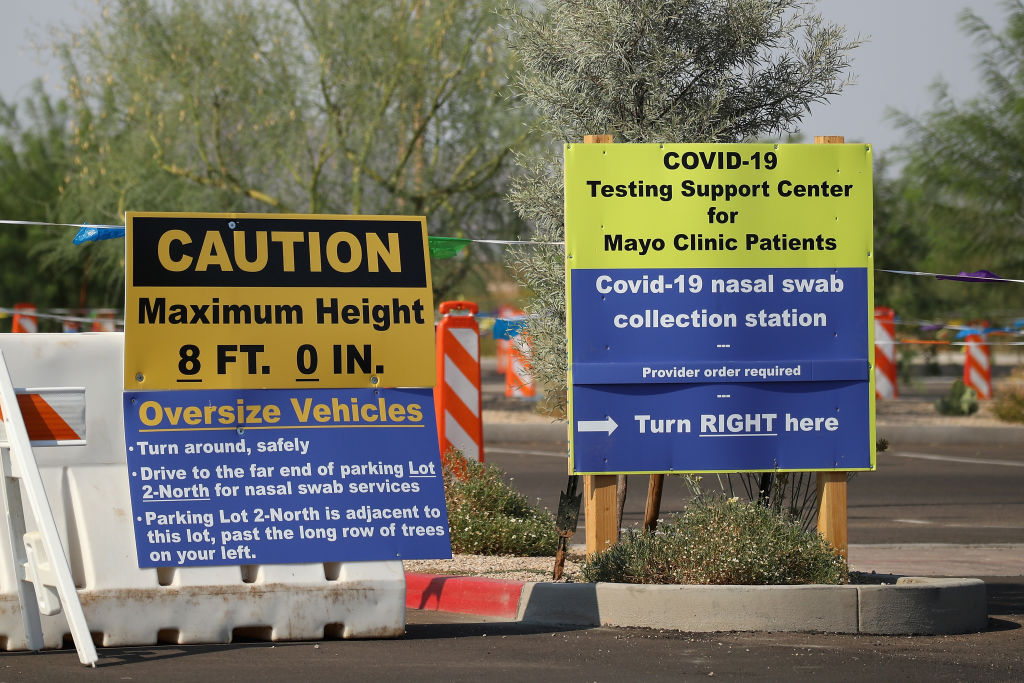Mayo Clinic fires 700 unvaccinated employees


A free daily email with the biggest news stories of the day – and the best features from TheWeek.com
You are now subscribed
Your newsletter sign-up was successful
The Mayo Clinic announced Wednesday that it had fired 700 unvaccinated employees the previous day, NBC News reported.
These employees, according to CBS News, make up around 1 percent of the Mayo Clinic's 73,000-strong workforce. They were fired after missing a deadline to either obtain a dose of a COVID-19 vaccine or obtain a religious or medical exemption by Monday.
Mayo Clinic is headquartered in Rochester, Minnesota with satellite campuses in Jacksonville, Florida and the Phoenix/Scottsdale area.
The Week
Escape your echo chamber. Get the facts behind the news, plus analysis from multiple perspectives.

Sign up for The Week's Free Newsletters
From our morning news briefing to a weekly Good News Newsletter, get the best of The Week delivered directly to your inbox.
From our morning news briefing to a weekly Good News Newsletter, get the best of The Week delivered directly to your inbox.
The prestigious hospital system said the firings were "necessary to keep our patients, workforce, visitors and communities safe" but that dismissed employees are welcome to re-apply if they get vaccinated in the future.
A group of 85 Minnesota lawmakers, led by state Rep. Peggy Bennett (R), signed a letter to the Mayo Clinic last month urging the hospital not to fire unvaccinated employees and threatening to withhold state funds from any "healthcare facility that fires their employees due to unrealistic vaccine mandate policies."
Conservative podcast host Liz Wheeler also stuck up for the fired healthcare workers. "Do not say one word about hospital staffing crises when the Mayo Clinic just fired 700 workers for being unvaxxed," Wheeler tweeted.
Former NBCUniversal executive Mike Sington took to Twitter to express a very different view. "Good, keep it up, keep firing them," he wrote. "Ban the unvaccinated from their jobs, from public places. They can sit in their homes alone, while the rest of us enjoy our lives."
A free daily email with the biggest news stories of the day – and the best features from TheWeek.com
Grayson Quay was the weekend editor at TheWeek.com. His writing has also been published in National Review, the Pittsburgh Post-Gazette, Modern Age, The American Conservative, The Spectator World, and other outlets. Grayson earned his M.A. from Georgetown University in 2019.
